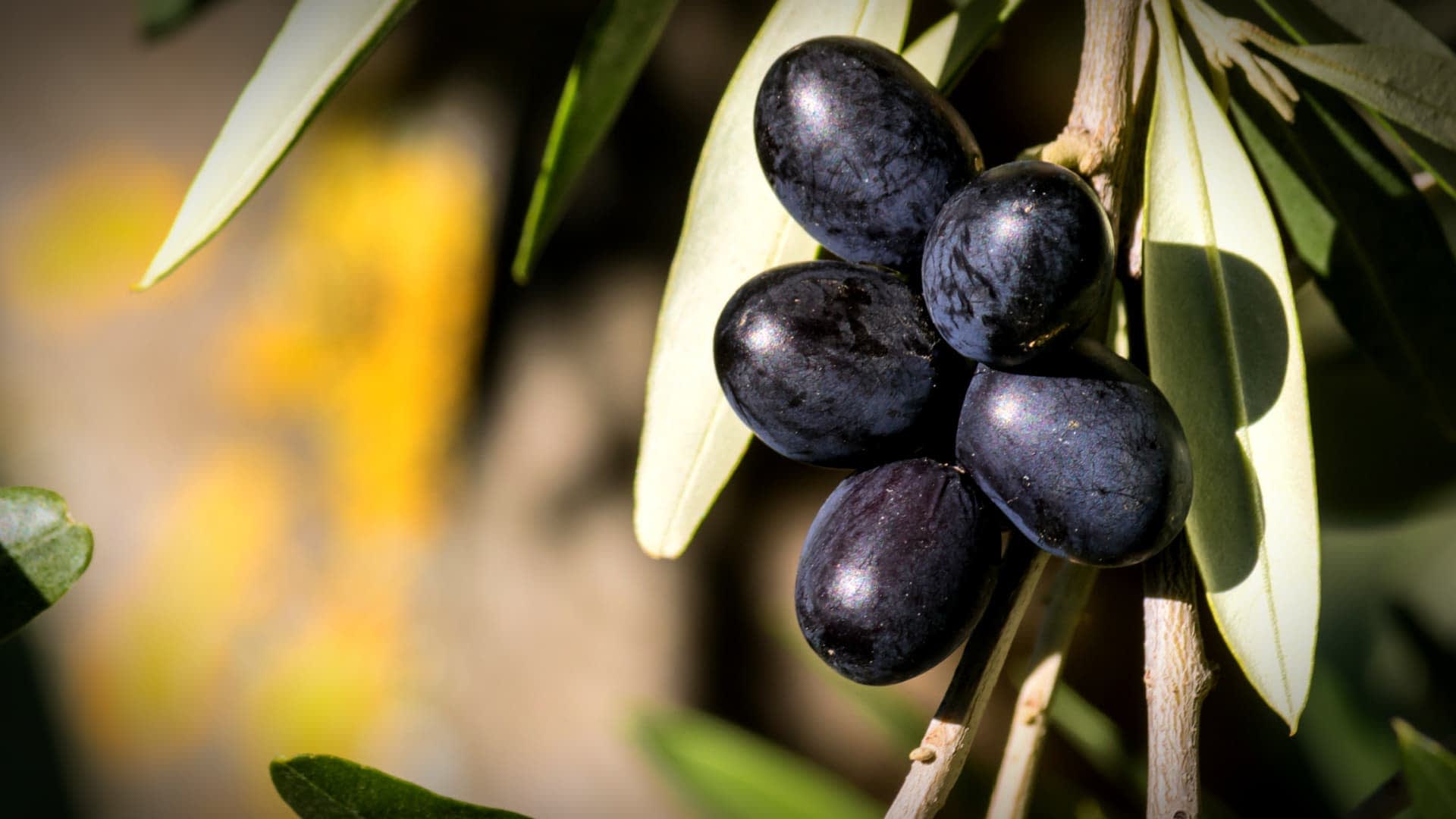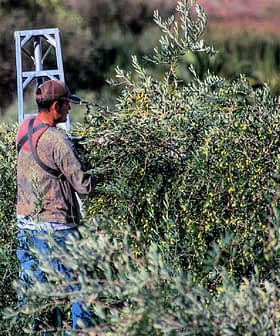Europe Pressures U.S. to Drop Trump-Era Tariffs

The European Union has initiated a compliance proceeding at the WTO to push the U.S. to remove tariffs on Spanish table olive imports, following a WTO ruling that the tariffs were illegal. The U.S. has not fully complied with the ruling, leading to potential retaliatory measures from the E.U., while a separate case in the U.S. Court of Appeals may also impact the outcome of the dispute.
The European Union has initiated a compliance proceeding at the World Trade Organization to pressure the United States to drop its tariffs on some Spanish table olive imports.
The decision comes eighteen months after the WTO ruled that the U.S. tariffs violated international rules and four months after U.S. action intended to comply with the ruling.
“The United States has failed to comply with the recommendations and rulings,” João Aguiar Machado, the E.U.’s permanent representative at the WTO, wrote in a letter to the organization that announced the initiation of the proceeding.
See Also:Trade NewsThe European Commission has also publicly questioned the “lack of changes to the U.S. domestic legislation despite it having been judged inconsistent with WTO rules.”
“As a result, duties are kept in place, making it more and more difficult for Spanish olive growers and processors to remain in the U.S. market,” the commission added.
While Brussels said attempts to settle the matter had failed so far, a spokesperson for the commission told Law360 that “the E.U. hopes for constructive consultations and remains open to finding a negotiated solution to ensure full implementation of the WTO ruling and removal of the duties.”
However, the fate of the E.U.’s case at the WTO may hinge on the result of a separate case that stemmed from the original dispute. Aceitunas Guadalquivir v. United States, Coalition for Fair Trade in Ripe Olives, is being litigated in the U.S. Court of Appeals for the Federal Circuit.
The dispute began with a legal action taken by the Coalition for Fair Trade in Ripe Olives in 2017.
The coalition of California olive growers and table olive producers, spearheaded by Musco Family Olive Co and Bell-Carter Foods, filed a petition with the U.S. Commerce Department alleging subsidies provided to olive growers by the Spanish government and the E.U. Common Agricultural Policy (CAP) unfairly benefited olive packers and exporters who, as a result of the subsidies, could sell their packaged table olives in the U.S. at below-market prices.
The Commerce Department selected Aceitunas Guadalquivir, Angel Camacho Alimentacion and Agro Sevilla Aceitunas S.COOP Andalusia, the three largest ripe table olive packers and exporters to the U.S., as its sample to determine whether Spanish ripe table olive exports to the U.S. were being subsidized.
In July 2018, Commerce Department determined that Spanish ripe table olives were being subsidized. They passed this finding on to the U.S. International Trade Commission (ITC), which determined that the subsidized ripe table olive imports materially injured the domestic industry.
Based on the ITC’s finding, the Commerce Department authorized anti-dumping and countervailing duties (CVD) ranging from 7.52 percent to 27.02 percent.
The effects of the tariffs were immediate and devastating for Spanish table olive producers, with exports to the United States falling by 60 percent and costing producers hundreds of millions of Euros in short order.
In response, the table olive producers and the Spanish Association of Table Olive Exporters and Producers (Asemesa) sued the Commerce Department.
After unsuccessfully defending its position at the U.S. Court of International Trade twice, the Commerce Department defended its position on the subsidies in a third court submission. It was immediately appealed and will be heard in a U.S. Court of Appeals.
The Court of Appeals’ decision will likely be final as any appeal to the U.S. Supreme Court is unlikely to be heard.
Meanwhile, protests in Sevilla and outcries from Madrid spurred the E.U. to sue the U.S. at the WTO in January 2019. In its complaint, the E.U. argued that the U.S. tariffs violated international trade rules because the CAP does not provide special benefits to table olive producers.
Adding to the pressure on Brussels, E.U. officials publicly expressed concern that the tariffs set a dangerous precedent and might encourage additional litigation against the CAP.
In November 2021, the WTO ruled in favor of the E.U. and found that anti-dumping and countervailing duties imposed in 2018 by the U.S. on imports of ripe table olives from Spain were illegal under international rules.
The WTO ultimately agreed with the E.U. that the section of the U.S. Tariff Act of 1930, cited in the Commerce Department’s decision to impose the tariffs, was inconsistent with international trade law.
In its ruling, the WTO told the U.S. to “bring its measures into conformity” with its General Agreement on Tariffs and Trade and other free-trade rules.
The U.S. declined to appeal the WTO ruling and agreed to revise the tariffs. However, the Commerce Department kept most of the tariffs in place.
The department also has not publicly commented on the E.U.’s decision to start a compliance proceeding and did not respond to Olive Oil Times’ request for comment.
At the start of the year, California table olive producers re-asserted their support for the tariffs, which they claim create a level playing field for national table olive producers.
In January, the Olive Growers Council of California applauded the decision to make only minor tariff adjustments. It argued that the move “fully addresses and resolves all WTO concerns.”
The council’s chief executive Todd Sanders said he “strongly supports” the decision to keep the tariffs in place. He did not respond to Olive Oil Times’ request for comment.
However, if the WTO decides in the E.U.’s favor before the U.S. Court of Appeals rules on its case and the Commerce Department continues inaction, the E.U. may apply retaliatory tariffs against U.S. imports.
“The issues before the WTO and the U.S. Court are different,” Matthew McCullough, a partner at Curtis, Mallet-Prevost, Colt & Mosle LLP, which has represented Spanish table olive producers from the onset, told Olive Oil Times.
“The WTO has said the law itself is inconsistent and, therefore, any application of it renders a measure that is inconsistent,” he added. “The only way you fix that and fix the measure is to change the law and then reconsider the measure.”
“The appeal that’s before the U.S. court isn’t about whether the law is illegal because it’s U.S. law, and the courts interpret U.S. law,” McCullough continued. “The argument before the court is that the Commerce Department interpreted the statute incorrectly and applied a standard in reaching an affirmative finding that was inconsistent with the meaning of the statute.”
The case hinges on the application of the standard for “substantially dependent” established for certain agricultural products by the U.S. Congress in 19 U.S.C. §1677 – 2(1):
19 U.S.C. §1677 – 2(1)
In the case of an agricultural product processed from a raw agricultural product in which — (1) the demand for the prior stage product is substantially dependent on the demand for the latter stage product, and (2) the processing operation adds only limited value to the raw commodity, countervailable subsidies found to be provided to either producers or processors of the product shall be deemed to be provided with respect to the manufacture, production, or exportation of the processed product.
In a brief filed with the court, McCullough argued the Commerce Department misapplied the standard because it “relied on post-codification administrative decisions to apply a lower standard” instead of following “the standard laid out in the unambiguous statute and not against its own later decisions,” which he contends would have been legally correct.
McCullough and his team added that the Commerce Department “failed to support its determination with substantial evidence and engaged in arbitrary decision-making.”
As a result, they argue that the Commerce Department misapplied the standard, which resulted in the implementation of tariffs.
“The provision of U.S. law that permitted the Commerce Department to find that subsidies received by olive growers benefited the processors of those olives, the ripe olive producers themselves, was inconsistent as such with the SCM [Subsidies and Countervailing Measures] agreement,” McCullough said.
“When you have an ‘as such’ finding about a statute, it means that the statute has to be changed,” he added. “I think that is one of the key controversies now and will be the subject of that [WTO] compliance proceeding.”
As a result of what McCullough believes is the Commerce Department’s misinterpretation of the standard and misapplication of the statutory provision, there would be no subsidy margin.
“In other words, the level of subsidization would’ve been de minimis, which is the equivalent of zero, and if that had been the result, then the case would’ve been terminated,” he said.
The termination of the case would remove the Commerce Department’s legal basis for its countervailing duties because, “in terms of injury, the imports issue would’ve been found not subsidized,” McCullough said.
If McCullough and the Spanish table olive producers win their appeal, the CVD tariffs could be voided. This may resolve the specific measure at issue in the E.U.’s compliance complaint (the duties on ripe olives) but would not resolve the ‘as such’ finding, which would require the U.S. Congress to change the law to become consistent with the SCM agreement.
Arguments in Washington, D.C., are set to begin later this year.










